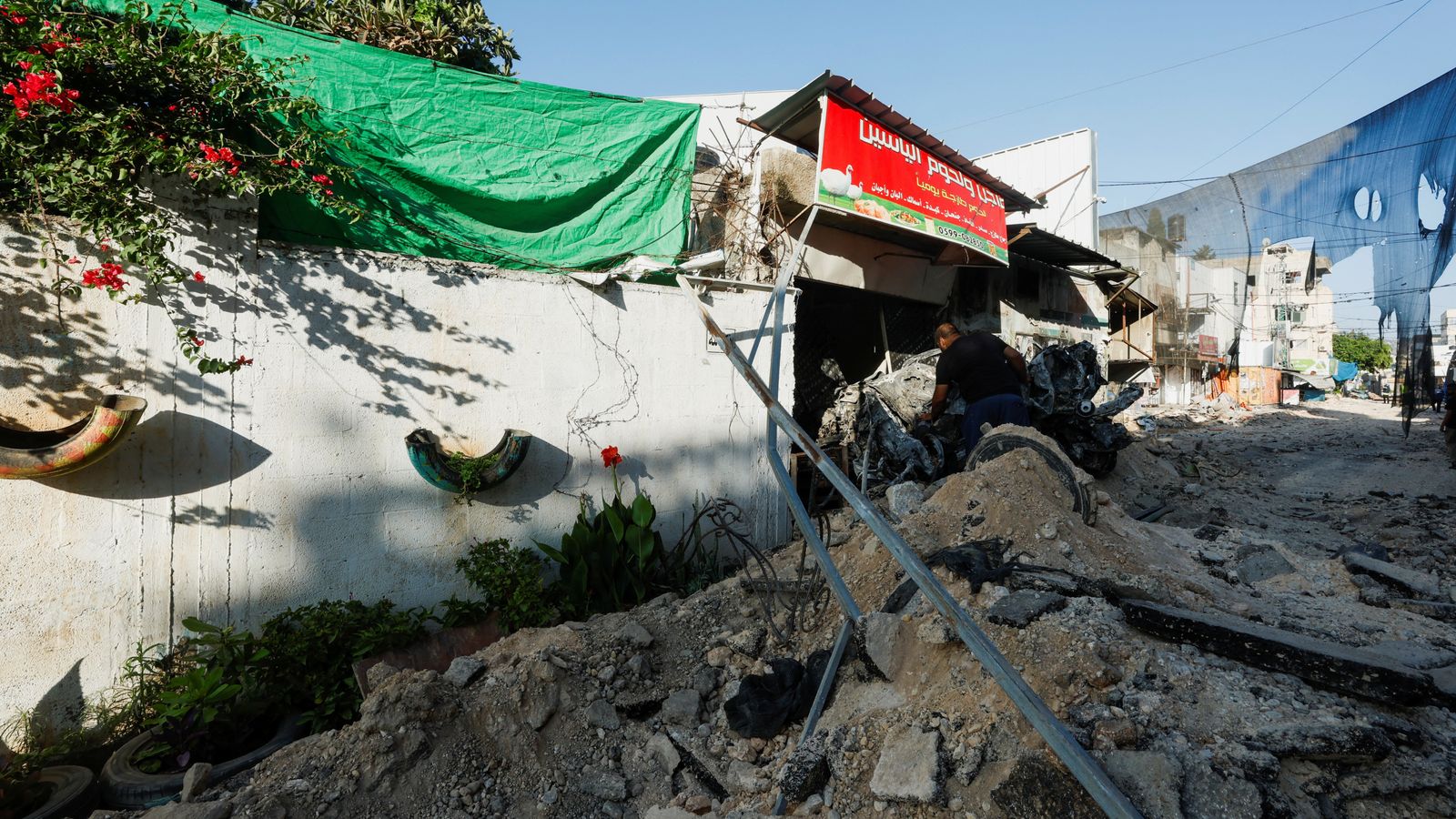Israel’s Jenin operation may have achieved its objectives – but it will have also deepened hatred

There’s only one road into Jenin – the checkpoint to the north is closed as Israel’s military operations continue into its second day and temporary army posts hold up the traffic a few miles out as soldiers check every car going in.
Driving into the city is an obstacle course around burning tyres, rubbish tipped onto the road and skips set alight.
Ambulances constantly rush in and out of the city, red flashing lights and sirens wailing.
Columns of heavily-armoured Israeli troop carriers pass us every few minutes, the soldiers invisible inside but for small holes and the barrel of guns pointing out.
There is the occasional thump of an explosion or crackle of gunfire, and a constant hum of drones high overhead, which is hard to make out against the bright July sun.
It was a drone strike that started this operation, in the early hours of Monday morning, and their presence in the sky is as much a deterrence as it is a weapon.
The shops are all shut – there is a general strike in the West Bank – and few people are out and about.
We saw very few women or children, with residents told to stay indoors. It’s mainly young men on the streets now, vowing to fight the Israelis until they leave.
“We still don’t know where many people are,” one man tells me. “We think they could have been buried under the rubble of the drone strikes.”
Advertisement
“We will fight them until our last breath.”
Please use Chrome browser for a more accessible video player
0:37
Gunshots heard in West Bank city of Jenin
Read more:
Previous large-scale Israeli operations in West Bank have failed to calm tensions
Israel carries out biggest West Bank strikes in nearly two decades
Eight casualties in ‘Palestinian car-ramming and stabbing attack’ in Israel
Israeli officials say they have almost achieved their objectives and there is speculation it could be wrapped up sooner than initially thought.
Once it’s over, they will have seized weapons, destroyed command centres and gathered masses of useful intelligence.
But they will also have deepened the hatred and motivated the resistance in this city that has always fought back.